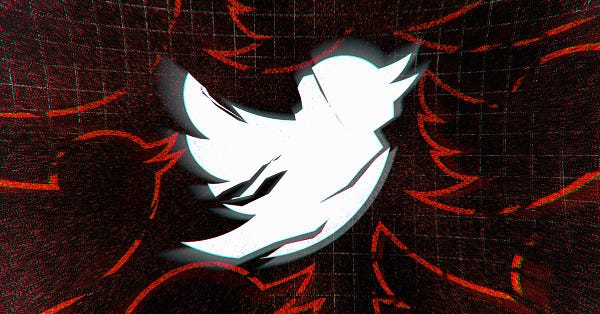
Twitter has officially entered its Musk era. This is leading folks to either leave, or to simply engage less, which for social media companies that live or die on continuous engagement, amounts to the same thing.
FWIW, ever since Musk started this campaign to buy Twitter, engagement had begun to wane and the vibe was already there. This sentiment was captured earlier this summer by writer Annalee Newitz in their post “Twitter is becoming a lost city:”
This is not what’s happening on Twitter. I’m not seeing a flood of new people arriving, spouting memes I don’t understand. I’m just seeing less of everything. The point is, Twitter isn’t becoming a vibrant but different social space that belongs to a new group of people; it’s being abandoned.
As someone who has written a lot about urban abandonment (in my book Four Lost Cities and elsewhere), many of the Twitter abandonment patterns are startlingly familiar. In cities, people usually start to leave when there’s a combination of political instability and infrastructure decay. On Twitter, you’ve got the corporate media equivalent of political instability with Elon Musk’s botched takeover attempt, coming right on the heels of the difficult transition from founder/CEO Jack Dorsey’s reign to current CEO Parag Agrawal’s. And if you think of the Twitter user experience as its social infrastructure, that too is falling apart. There’s the lack of moderation and selective rule enforcement, plus the company’s longtime inability to address user concerns about everything from edit buttons to abuse. (Its technical infrastructure has also had many problems.)
Over at Garbage Day, internet culture writer Ryan Broderick wrote this piece:
My own Twitter use has declined over the past year. Several years ago, when I started doing more public work, I gravitated toward twitter. It was public and text-based, and I don’t communicate as well via photos or video. I didn’t invest as much time in Instagram, or in recent years, TikTok—to my own detriment, it seems. The audiences on IG and TikTok are much larger and more engaged, and lots of people use the #exvangelical tag to create lots of interesting content and build followings. But especially in those first few years, leading up to my first hiatus in spring 2019, Twitter was a vibrant (if volatile) place. It was essentially in allowing counter-publics to flourish, which I wrote about here:
I always wanted Twitter to do better. It would show promise, then flounder, then take more steps forward. Its new owner’s ideas so far seem far too simplistic for a product that is used in such complex ways. The Verge’s editor-in-chief Nilay Patel summed up the challenges Musk and his merry band of musketeers will have to contend with in a piece called “Welcome to hell, Elon:”
Two weeks ago, David Dark posed the question “What do we talk about when we talk about Twitter?” This was my response:
Twitter is and has been many things:
a communications protocol
a microblogging service
a vector for misinformation and harassment
a meme source
It’s also been a place to meet people you’d never know otherwise, or get wrapped up in parasocial relationships, or learn by listening/following those different than you. We each have related to it differently, if we related to it at all.
Like so many things, its future is uncertain and far from guaranteed. Twitter, like so many digital services, has ingratiated itself into our lives and become a dependency. Whether Twitter’s users will agree with Elon that it’s indispensable—and whether they agree for their content & engagement to further enrich the world’s richest man & his business partners—remains to be seen.








